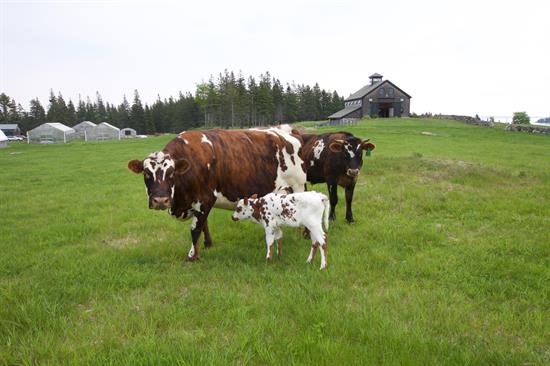Press Releases
VIDEO: In Hearing, Pingree Pushes Agriculture Secretary to Support Maine, Northeast Organic Dairy Farmers After Danone Cuts Contracts
Washington,
January 20, 2022
Tags:
Food and Agriculture
WASHINGTON, DC—Today, Congresswoman Chellie Pingree (D-Maine) questioned U.S. Department of Agriculture (USDA) Secretary Tom Vilsack in a House Committee on Agriculture hearing focused on reviewing the state of the rural economy. Specifically, Pingree pressed Secretary Vilsack on what steps the USDA is taking to evaluate and act on the Northeast Dairy Taskforce’s recommendations to support organic dairy farms in wake of Danone severing contracts with 89 farms in the region. Pingree also questioned Secretary Vilsack on how the USDA’s Climate-Smart Agriculture and Forestry Partnerships program will be structured to ensure the program is available to producers of all sizes, methods, locations, and types of production. A full transcript is available below. Click here to watch a full recording of the hearing.
Secretary Vilsack, it’s wonderful to have you in front of us and great to hear your answers to all of our questions today. I want to particularly commend you on speaking as favorably as you did around the issues related to GIPSA, the lack of fairness in the tournament system, line speeds—these are just such critically important issues to address both for our farmers and also the health and safety of people who work in our production facilities utility. So, thank you for that. But I'll get on to my questions. You know all too well that Danone recently announced that they will be pulling out of the Northeast, terminating the contracts of 89 organic dairy farms in the region, including, unfortunately, 14 farms in Maine. So, in response to this, there's been a stakeholder task force that was convened, and they submitted a list of over 30 recommendations to you last month to both support the farms who are losing their contracts and to ensure the long-term success of the organic dairy sector in our region, which has been so important to our dairy farms. These recommendations encompass everything from building more regional processing capacity to developing new markets, addressing transportation and distribution challenges, a lot of things that could be done. So can you talk to me a little bit about the steps that the USDA is taking to evaluate and act on those recommendations? And I just want to reiterate, since I know you have made both climate change and the issues related to consolidation agriculture top of mind and an important priority for the Department—the importance of protecting organic farms when we're thinking about issues related to climate change is so critically important, we do not want to lose that capacity. So, keeping them operating is a high, high priority for our New England delegation. I also want to ask you about climate support agriculture. I really appreciated your comments and testimony about ensuring that the USDA's climate smart agriculture and forestry partnerships will be available to producers of all size, all methods, all locations, and all types of production which we care deeply about. So even though I know you're working out some of the details, can you help us understand how we will structure the program to ensure this commitment is met? CP: Background: In August 2021, Danone, a multinational food company and owner of Horizon Organic, notified 89 dairy farmers in Maine, Vermont, New York, and New Hampshire that their contracts would be terminated in August 2022. Pingree and 12 members of Congress representing New England wrote to Secretary Vilsack in September 2021, urging the USDA to increase support for dairy farmers in the region who are grappling with an uncertain future due to the cancellation of their contracts by Danone. The following month, Pingree and fellow northeast lawmakers Representatives Peter Welch (D-V.T), Jared Golden (D-Maine), and Annie Kuster (D-N.H.) sent a letter to chief executives of Danone regarding the company’s decision to terminate its contracts with organic dairy farms across the Northeast, including 14 farms in Maine. The group urged Danone and its subsidiary, Horizon Organic, to reconsider their decision to pull out of the region, and to instead prioritize the well-being of farms and surrounding communities. Subsequently, Danone announced that they would be extending the contracts for an additional six months and providing additional financial support to affected farms. In December, a stakeholder taskforce submitted a list of over 30 recommendations to the USDA on how to respond to the situation, including both immediate assistance for affected producers and long-term efforts to stabilize the sector. The recommendations focused on institutional markets for organic dairy, regional processing, distribution logistics, farm business viability, marketing and market development, and other federal response recommendations. As a longtime organic farmer, Pingree has repeatedly advocated for the USDA to close loopholes that disadvantage Maine organic farmers and undermine the organic label. In addition to serving on the House Committee on Agriculture, Pingree is also Vice Chair of the House Appropriations Subcommittee on Agriculture, Rural Development, Food and Drug Administration, and Related Agencies.
### |

